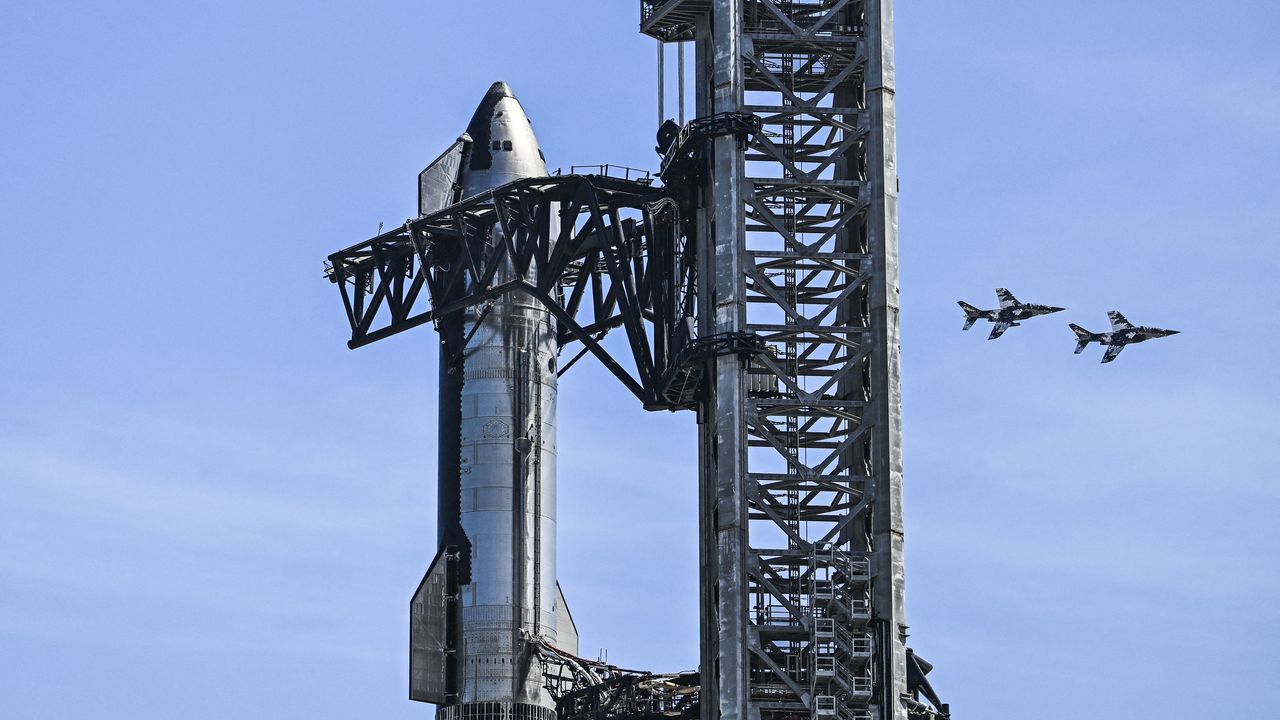
[ad_1]

Spacex’s massive Starship successfully reached space for a second time on Thursday during its third and most ambitious flight test, which featured technologies critical for any future manned missions to the moon or beyond.
Why it matters: The rocket, which is essential for NASA’s Artemis program, is the largest ever built, but has yet to complete a full test flight and has reached space only once.
The latest: Starship launched from the company’s Starbase in Boca Chica, Texas, around 9:25am ET.
- The vehicle successfully separated from its booster and opened its payload door while in orbit.
- The booster successfully started a controlled descent flight back to Earth after separation, then lost signal.
Context: The Starship’s second test flight last year ended abruptly without meeting the stated goals for the test.
- The vehicle’s huge lower-stage booster exploded after a successful separation from the upper-stage spacecraft portion. The upper stage then exploded after reaching an altitude of about 90 miles.
- The first test flight earlier in 2023 ended with another explosion, though that was after the rocket punched a crater through the launchpad and spread debris for miles around the launch site.
Yes, but: Such spectacular blunders have been a part of the company’s hardware engineering philosophy: move fast, embrace failures and learn from them.
- The philosophy and its safety considerations have been criticized as cavalier for human spaceflight.
- Still, SpaceX has rapidly become the most prolific human spaceflight provider so far without a catastrophic failure.
What they’re saying: “Each of these flight tests continue to be just that: a test,” the company said before launch.
- “They aren’t occurring in a lab or on a test stand, but are putting flight hardware in a flight environment to maximize learning.”
The big picture: NASA has selected the company to carry astronauts to the surface of the moon as early as 2026 on a lander variant of Starship.
- If the company has its way, Starship will one day fly people and cargo even deeper into space to destinations like Mars.
Go deeper: Democrats launch SpaceX probe over Russian use of Starlink satellites
Editor’s note: This story was updated with the latest developments in the launch.
[ad_2]
Source link